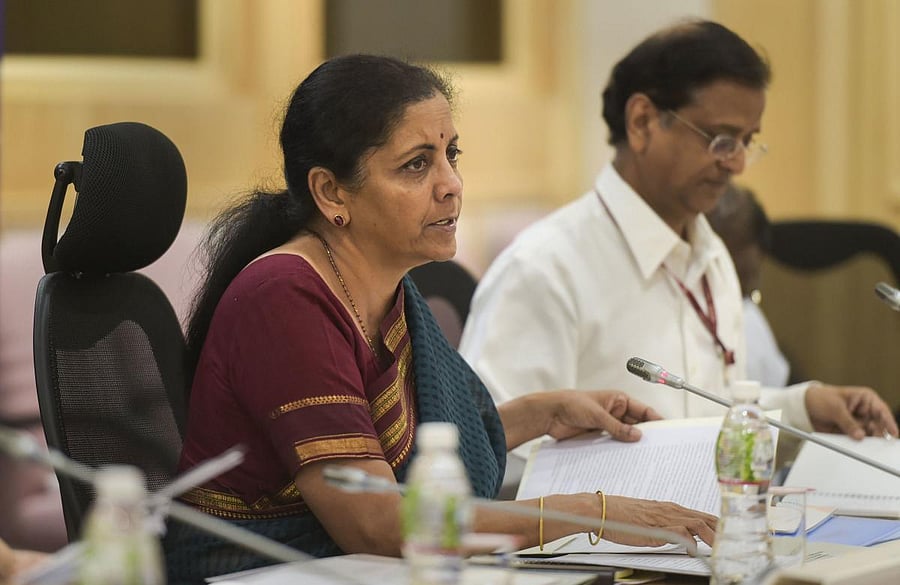
Hit by a shortfall in revenues and increasing global economic uncertainties, the Union Budget for 2019-20 this week may stop short of making any big bang announcements but measures to address the pain points in the economy will be unveiled.
Steps to boost investment and demand, the health of small and medium enterprises and key job-creating sectors, including agriculture and housing, are expected to be key focus areas in the first budget of Finance Minister Nirmala Sitharaman on July 5, being presented in the backdrop of a five-year low economic growth of 6.8% in 2018-19.
"Risks to global growth are increasing. The fear of trade war converting into a currency war could hit emerging markets economies including India. Geopolitical tensions between the US and Iran could keep commodity prices up, including oil. These factors would also impact the budget," an official privy to the development told DH.
Union Budget 2019 | Get the live news updates, views & analysis here
Some relief on direct taxes is likely, in order to give more money in the hands of the middle class, as the government seeks to address slowing demand in the key sectors such as fast moving consumer goods and automobile industries, he said, adding corporate India may have to wait for a big tax rejig.
In the interim Budget in February, minister Piyush Goyal had exempted income of up to Rs 5 lakh from tax, but did not change the basic exemption limit of 2.5 lakh for others. This time around, Sitharaman is expected to increase the exemption limit by about Rs 50, 000.
Besides, the minister could also go in for rationalisation of slabs to introduce a 10% tax slab in between five and 20%. The expectation over increasing Section 80C exemptions from Rs 1.5 lakh to Rs 2 lakh may fall flat this time, as the process may involve a lot of rejigging.
“The income tax relief could come in phases. Everything may not be announced this time but there will a budget again after six to seven months. Relief could come through that too,” the official said.
There could be more deduction for interest on home loans to reverse the slowdown in the housing industry, clearing the pile-up of unsold houses and starting fresh constructions. This will give a boost to new jobs.
The interim budget had not raised the exemption on home loan interest rates. Higher tax incentives are expected to boost the affordable housing segment. The pressure points in housing and auto sectors are directly linked to the health of non-banking finance companies. The finance minister could also spell steps to address funding concerns of NBFCs in order to re-boot the economy.
Additionally, banks could be asked to have separate nodal officers appointed only to look after the needs of small and medium sectors.
After having already announced a direct transfer of Rs 6,000 per year in farmers' accounts, the government may give more incentives through the budget to farmers who opt for farm mechanisation to boost productivity. Incentives for start-ups in the farm sector are another focus area, an official said, adding the move would help build agri-infrastructure and exports.
Budget will lay down the roadmap for Rs 100 lakh crore expenditure on the infrastructure sector in the next five years as promised in the BJP manifesto. Roadmaps for shifting to electric vehicles and steps to ameliorate aviation sector woes are expected among other things.
India's looming water crisis and steps to address that may form part of the finance minister's Budget speech. A 100-day and 200-day plan to boost the economy is expected. Most of the announcements will be made keeping in mind 2022, the 75th year of India's independence or the 150th birth anniversary of Mahatma Gandhi.

